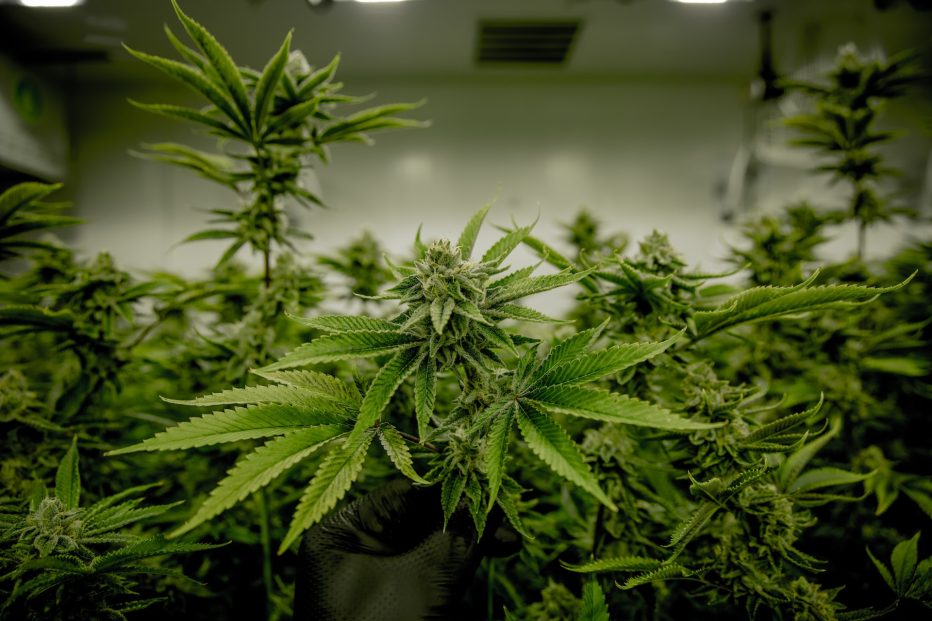Legal status of THCA VS THC VS CBD
Ever since cannabis became popular, its different compounds like CBD, THCA and THC became popular too. While some of these compounds have been attributed to the quality of being high, others just have relaxing effects that can be good for the body. THCA is the precursor of THC known for its non-toxicating effects. THC, on the other hand, ignites controversy with its mind-altering prowess, dancing between legality and prohibition in a global tango of laws.
Meanwhile, CBD, the rising star, steps into the limelight, hailed for its therapeutic promise and championed for its non-psychoactive allure. This isn’t just about compounds; it’s a saga of evolving regulations, medical marvels, and the pulse of public sentiment. Join us as we unravel the intricate legal tapestry surrounding THCA, THC, and CBD, navigating the dynamic realms of law, perception, and potential.
THCA (Tetrahydrocannabinolic Acid)
THCA is a precursor to THC, the psychoactive component responsible for the “high” associated with cannabis. Unlike THC, THCA is non-intoxicating in its natural state and must undergo decarboxylation, a process triggered by heat, to convert into THC. This compound is commonly found in raw cannabis plants and is not regulated in the same manner as its psychoactive counterpart.
Legal Status of THCA
In many regions, THCA exists in a legal grey area. It is often overlooked or exempted from regulations due to its non-intoxicating nature. Some jurisdictions might not specifically address THCA in their legislation, leaving it unregulated or treated similarly to non-psychoactive cannabinoids like CBD.
THCA often occupies a legal gray area due to its non-psychoactive nature. Many jurisdictions either overlook or exempt THCA from specific regulations governing psychoactive compounds like THC. However, the legal status of THCA can vary significantly depending on regional cannabis laws and their specificity in addressing this precursor compound.
Regulatory Response to THCA
Some regions lack explicit laws governing THCA, leaving it largely unregulated or treated similarly to non-psychoactive cannabinoids like CBD. The absence of specific regulations might permit the possession and use of THCA-containing products, especially when derived from cannabis strains with high THCA content and minimal THC.
THC (Tetrahydrocannabinol)
THC is the primary psychoactive compound in cannabis, responsible for the euphoric effects upon consumption. Its psychoactive properties have led to stringent regulations and classifications in many jurisdictions.
Legal Status of THC
The legal status of THC varies widely across the globe. In some places, THC is strictly prohibited, classified as a controlled substance under drug laws due to its psychoactive effects. Other regions have legalized THC for medical and even recreational use, subject to specific regulations and limitations.
In the United States, for instance, federal law lists THC as a Schedule I controlled substance. However, individual states have enacted their own laws, legalizing THC for medicinal and/or recreational purposes. This discrepancy between federal and state law creates a complex legal environment where enforcement and regulation can vary significantly based on location.
Regulatory Discrepancies and Challenges
In areas where state laws conflict with federal regulations (such as in the United States), the legality of THC becomes complex. Federal law classifies THC as a Schedule I controlled substance, while individual states have implemented their own laws permitting its use under certain circumstances. This discrepancy complicates enforcement and creates challenges for businesses operating within the cannabis industry.
CBD (Cannabidiol)
CBD, unlike THC, is non-intoxicating and has gained popularity for its potential therapeutic properties, including anti-inflammatory, analgesic, and anxiolytic effects. It is extracted from hemp, a variety of cannabis with low THC content.
Legal Status of CBD
The legal status of CBD has seen substantial changes in recent years. In some regions, CBD derived from hemp with minimal THC content is legal, whereas CBD derived from marijuana with higher THC concentrations might be subject to stricter regulations.
In the United States, the 2018 Farm Bill legalized hemp-derived CBD containing less than 0.3% THC. This legislation removed hemp-derived CBD from the list of controlled substances, allowing for its cultivation, production, and sale in various forms, subject to certain regulations.
However, the legality of CBD is not consistent globally. Some countries strictly regulate or prohibit CBD in all forms, while others permit its use for medicinal purposes with specific conditions.
Global Variances in CBD Regulation
However, the legality of CBD is not uniform worldwide. Some countries strictly regulate or prohibit CBD in all forms, while others permit its use for medicinal purposes under specific conditions. The evolving legal landscape continues to shape access to CBD products and research opportunities.
Legal Nuances and Considerations
Some of the legal considerations about the legalization are as follows:
- Navigating Complex Regulations
The diverse legal status of THCA, THC, and CBD poses significant challenges for individuals and businesses operating in the cannabis industry. Navigating the intricate web of regulations requires a nuanced understanding of local laws and compliance measures.
- Quality Assurance and Safety Measures
Ensuring quality and safety standards in the production and distribution of cannabis-derived products remains paramount. Strict regulations govern cultivation, extraction methods, and product labeling to safeguard consumers and maintain product consistency.
- Potential for Medical Research and Therapeutic Applications
While CBD has gained traction for its potential health benefits, including anti-inflammatory and anxiolytic properties, access to THC for medicinal purposes might face more stringent restrictions due to its psychoactive nature. Nonetheless, ongoing research and evolving regulations offer hope for broader exploration of these compounds’ medical potential.
Conclusion
THCA, THC, and CBD navigate a complex legal landscape shaped by varying regional regulations, international treaties, and societal perceptions. THCA’s ambiguous status often falls outside specific legal frameworks, while THC faces stringent controls due to its psychoactive effects. CBD, with its non-intoxicating nature, has seen more widespread acceptance, albeit with differing degrees of regulation across different regions.
The interplay between scientific advancements, societal attitudes, and regulatory frameworks continues to mold the legal status and accessibility of these compounds. International compliance, social perspectives, and evolving legislation pose challenges and opportunities for individuals, businesses, and policymakers navigating the dynamic terrain of cannabis-derived compounds, shaping their legal landscapes and applications worldwide.

